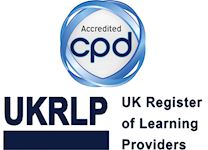Financial Analysis: Accounting Variance Analysis
Financial Analysis: Accounting Variance Analysis | CPD Accredited | 10 CPD points/credits
CPD Courses
Summary
- Exam(s) / assessment(s) is included in price
- Tutor is available to students
Add to basket or enquire
Overview
Accounting Variance Analysis
Variance analysis is a kind of quantitative investigation which finds the difference between planned and actual behaviour. To exercise budgetary control, variance analysis is a very significant tool because it is used to maintain control over the business.
This unit aims to describe the different ways in which the management might monitor and guide the operations of a business to accomplish the required goals, mainly in respect of costs and sales. It also explains variance, direct material variances, direct material price variance, direct labour variances, direct labour (wages) rate variance and direct labour efficiency (time) variance.
Moreover, various topics such as overhead cost variance (OCV), variable overheads cost variance (VOCV), fixed overhead cost variance (FOCV), sales price variance, control of variances and variance reporting will be comprehensively discussed in this unit.
CPD
Course media
Description
Accounting Variance Analysis
Objectives:
After completing this course learners will be able to:
Describe the ways in which the management might monitor and guide the operations of a business to meet the desired goals, particularly in respect of costs and sales.
- Identify the factors responsible for deviation of actual performance from the standard performance and know how to take the necessary remedial measures.
Program Content:
Lesson(s):
Introduction to Variance Analysis
Topics:
- Meaning of Variance
- Direct Material Variances
- Direct Material Price Variance
- Direct Labour Variances
- Direct Labour (Wages) Rate Variance
- Direct Labour Efficiency (Time) Variance
- Overhead Cost Variance (OCV)
- Variable Overheads Cost Variance (VOCV)
- Fixed Overhead Cost Variance (FOCV)
- Sales Price Variance
- Control of Variances
Who is this course for?
Accounting Variance Analysis
Target Audience:
- New or recent recruits to banking and financial organisations
- Operations and support staff
- Finance and accounting staff
- Dealers and Traders
Requirements
Accounting Variance Analysis
No prior knowledge is required to take this unit.
*Note: This is an independent unit not a complete course so does not equalize to a course. This will give you 10 CPD points to add on your CV. At the end of the unit, you can claim CPD Accredited unit by paying £35 accreditation fee and postal charges (£9 for UK students, £15 for outside UK).
Questions and answers
Currently there are no Q&As for this course. Be the first to ask a question.
Reviews
Currently there are no reviews for this course. Be the first to leave a review.
Legal information
This course is advertised on reed.co.uk by the Course Provider, whose terms and conditions apply. Purchases are made directly from the Course Provider, and as such, content and materials are supplied by the Course Provider directly. Reed is acting as agent and not reseller in relation to this course. Reed's only responsibility is to facilitate your payment for the course. It is your responsibility to review and agree to the Course Provider's terms and conditions and satisfy yourself as to the suitability of the course you intend to purchase. Reed will not have any responsibility for the content of the course and/or associated materials.



